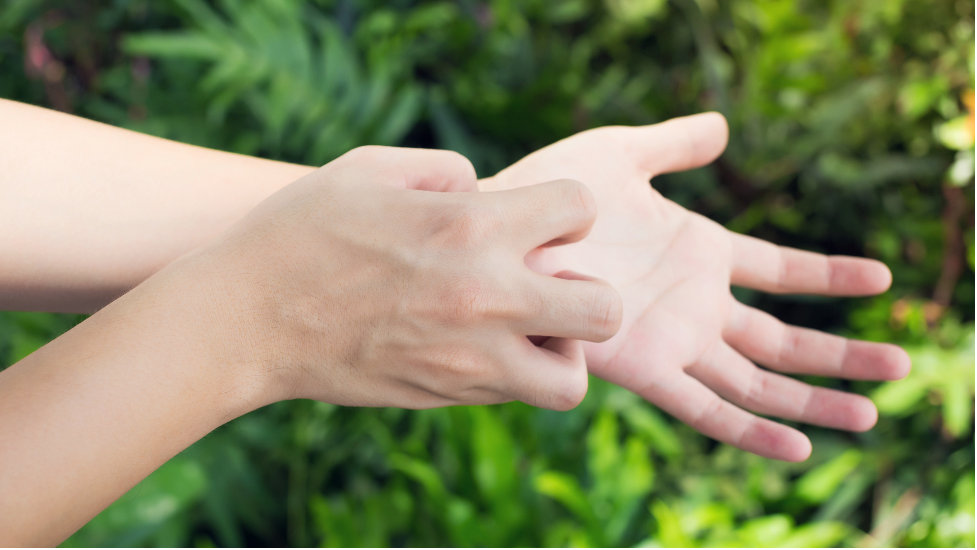
Poison ivy rash and children: prevention and management tips
With the warmer weather, your kids probably spend more time outdoors, which is great for their health and happiness. But with all the fun and adventure comes the risk of running into some not-so-friendly plants, like poison ivy, oak, and sumac. These plants can cause a nasty rash that's incredibly itchy and uncomfortable for your little ones.
But don't worry — we've got you covered with tips and tricks for preventing and managing poison ivy rash in your kids.
What is poison ivy rash?
Poison ivy rash is an allergic reaction when your skin comes into contact with the oil from a poison ivy, oak, or sumac plant.
The oil, called urushiol, is found in these plants' leaves, stems, and roots and can cause a red, itchy rash to develop on the skin. The rash usually appears in a linear pattern or clusters of bumps and blisters, which can be very uncomfortable.
So, if your child has been playing outside in the woods or near some overgrown areas, keep an eye out for any signs of poison ivy rash.
Identifying poison ivy, oak, and sumac plants
Poison ivy, oak, and sumac all contain urushiol oil, so learning how to identify these plants is crucial to avoiding contact and poison ivy rash.
- Poison ivy - Poison ivy has three shiny green leaves that grow on a stem and often have a reddish tint. It can also sometimes have white or green berries in the fall.
- Poison oak - Poison oak looks similar to poison ivy, but its leaves are more rounded and can have a scalloped edge. It also has small clusters of white or green berries.
- Poison sumac - Poison sumac has rows of paired small leaves that end with a single leaflet. Its leaves are bright green in the summer and turn red or orange in the fall.
If you're not sure a plant is poison ivy, oak, or sumac, avoid it altogether. Better yet, learn to spot these plants and teach your kids to recognize them so they can stay safe while playing outside.
Poison ivy rash treatment: soothing the itch and discomfort
Your little one got into some poison ivy, and now they're dealing with an itchy, uncomfortable rash. What can you do to help soothe their discomfort?
Here are some tips for treating poison ivy rash.
- Wash it off. As soon as you suspect your child has come into contact with poison ivy, wash their skin with soap and cool water. This will help remove any remaining urushiol oil and reduce the chances of the rash spreading.
- Cool compresses. Apply cool compresses to the affected areas to ease itchiness and reduce inflammation. Use a clean cloth soaked in cool water, or try ice wrapped in a thin towel.
- Calming lotions or creams. Lotions and creams specifically designed to soothe the itch and discomfort caused by poison ivy rash are available over the counter. Look for products with ingredients like calamine, hydrocortisone, and colloidal oatmeal. Apply these as directed on the packaging to provide relief.
- Keep nails short. Remind your child to avoid scratching the rash. Scratching can lead to further irritation and potential infection. Keeping their nails short can help minimize damage if they can't resist the urge to scratch.
- Oatmeal baths. An oatmeal bath can work wonders for relieving itchiness. You can find colloidal oatmeal products specifically made for baths at your local drugstore.
- Seek medical attention. If the rash is severe and covers a large area of the body, or if your child is experiencing symptoms like difficulty breathing or swelling, seek medical attention immediately. CityMD urgent care is always ready to help and provide the necessary treatment.
Poison ivy rash usually goes away within a few weeks. But in the meantime, you can help alleviate the discomfort and make the healing process more bearable for your children by following these tips.
Poison ivy treatment at CityMD
Poison ivy rash can be a pesky problem, but with the right prevention and treatment, your child can get back to having fun outside in no time.
Remember to educate your child on how to identify poison ivy, oak, and sumac, and encourage them to practice caution when exploring the outdoors. If you suspect your child has come into contact with these plants or is experiencing a severe rash, don't hesitate to visit your local CityMD urgent care.
Our medical professionals will provide expert care and treatment for various ailments, including poison ivy rash. Stay safe, and enjoy your time outside.

We’re ready to care for you.
Visit any CityMD urgent care location in your community today for an evaluation with one of our expert providers.